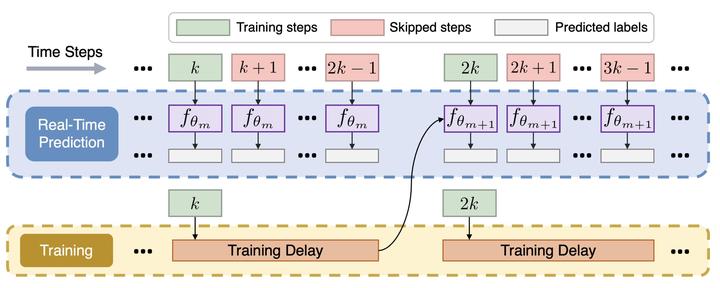
Abstract
Current evaluations of Continual Learning (CL) methods typically assume that there is no constraint on training time and computation. This is an unrealistic assumption for any real-world setting, which motivates us to propose a practical real-time evaluation of continual learning, in which the stream does not wait for the model to complete training before revealing the next data for predictions. To do this, we evaluate current CL methods with respect to their computational costs. We hypothesize that under this new evaluation paradigm, computationally demanding CL approaches may perform poorly on streams with a varying distribution. We conduct extensive experiments on CLOC, a large-scale dataset containing 39 million time-stamped images with geolocation labels. We show that a simple baseline outperforms state-of-the-art CL methods under this evaluation, questioning the applicability of existing methods in realistic settings. In addition, we explore various CL components commonly used in the literature, including memory sampling strategies and regularization approaches. We find that all considered methods fail to be competitive against our simple baseline. This surprisingly suggests that the majority of existing CL literature is tailored to a specific class of streams that is not practical. We hope that the evaluation we provide will be the first step towards a paradigm shift to consider the computational cost in the development of online continual learning methods.